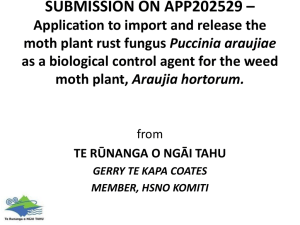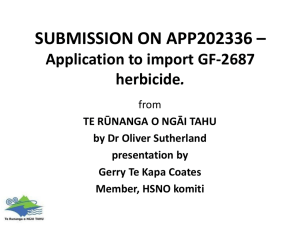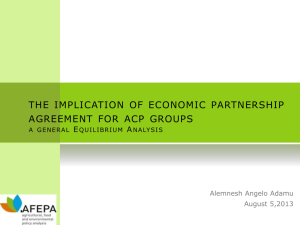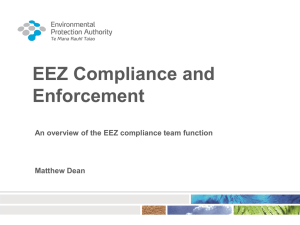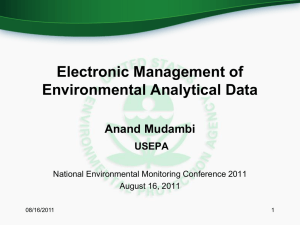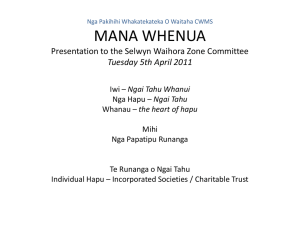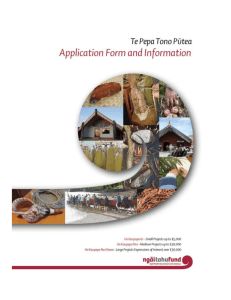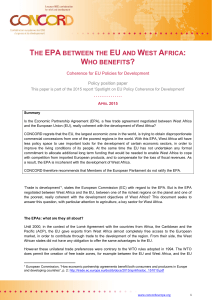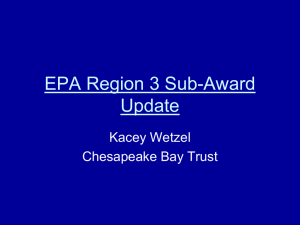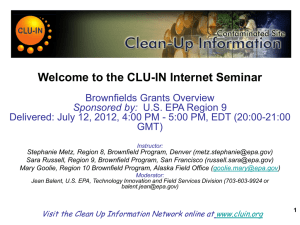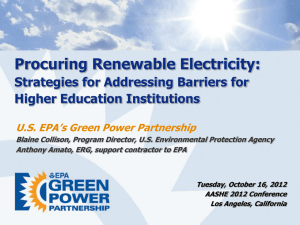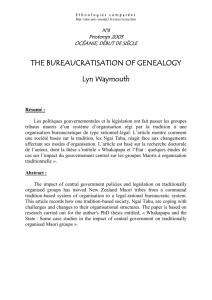Session 6 – Lessons learned from affected iwi
advertisement
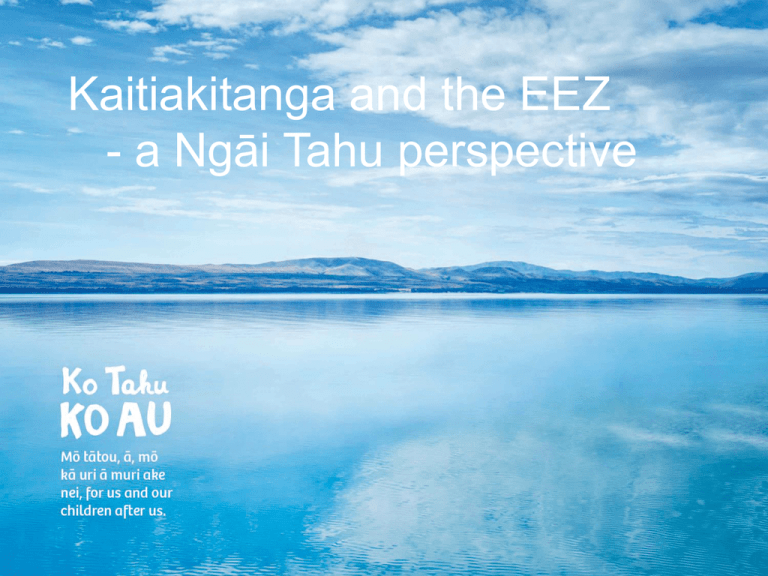
Kaitiakitanga and the EEZ - a Ngāi Tahu perspective Mō tātou, ā, mō kā uri, ā muri ake nei “The interest of Ngāi Tahu in activities in the EEZ stems from our kaitiaki responsibility, passed to us from our tūpuna, and by virtue of our position as Treaty partner.” “We have a duty to manage the marine environment, to ensure that those who come after us can enjoy the same relationship that we, and our tūpuna before us, have enjoyed.” Ngāi Tahu as kaitiaki in EEZ Act processes Defining ‘existing interests’ for Ngāi Tahu: • Fisheries Settlement assets • Commercial activities & whānau businesses • Mahinga kai • Taonga species • Wāhi tapu and wāhi taonga • Whakapapa - inherent rights & responsibilities How does kaitiakitanga fit within the EPA process? TTR decision helpful in defining ‘existing interests’ of iwi in the EEZ “In arriving at an understanding of the nature of existing interests held by Māori and how they might be affected by a particular proposal, it is necessary to understand that those existing interests are defined and understood within the paradigm of mātauranga Māori.” “We find iwi are a significant and important ‘existing interest’.” Kaitiaki influence in EPA processes - pre-application • The pre-notification stage is critical, whether its a notified marine consent or permitted activity • An open communication channel with the EPA, other agencies and industry has been key to better pre-notification engagement for Ngāi Tahu, which increases influence over the outcome • Statute and regulations only go so far – good organisational policy and culture shapes outcomes • EEZ regulations contain barriers to good relationships and outcomes for iwi – challenges to overcome in partnership with EPA & agencies Kaitiaki influence in EPA processes - start at the top • Majority of activity in the EEZ is coming from the mining sector • All minerals, oil and gas operators go through the gate of NZ Petroleum & Minerals (NZPAM) first, so need to set expectations with NZPAM • All ‘Tier 1’ operators sent to iwi, required to engage – get protocols in place early to get access and exchange ahead of formal notification • Set expectations, reinforce those leading in to EPA process – keep EPA informed in advance • Some companies behave better than others – give EPA knowledge to enable them to tautoko Kaitiaki influence in EPA processes - completeness check • To be complete, an application needs to identify the nature of existing interests and effects on those interests – mana moana always • Permitted, non-notified or notified, the Act requires existing interests to be covered • Getting understanding with EPA in advance – Ngāi Tahu has been working with the iwi liaison team throughout legislative reform – will be on-going • EPA team understands Ngāi Tahu structure, position and limitations – familiar - room to expand • Relationship will be tested with every new activity Kaitiaki influence in EPA processes - seismic surveys • Seismic surveys increasing in the Ngāi Tahu takiwā • Oil & Gas companies regularly knocking on the door of Te Rūnanga and Papatipu Rūnanga • Experiences differ company to company, but improving - working with NZPAM and DOC on best practice expectations in Ngāi Tahu takiwā • Getting Ngāi Tahu observers on the vessels is a priority – training and funding, needs industry and agency support • Providing a trigger for growing knowledge of customary practice in marine mammal recovery Kaitiaki influence in EPA processes - oil and gas drilling • Strongly opposed non-notified discretionary classification during legislative reform • Brand new activity in Ngāi Tahu takiwā about to start and no confidence in the framework • Papatipu Rūnanga working with the arrival of the petroleum industry in Great South Basin and Canterbury Basin • Not just EPA - NZPAM, Worksafe NZ and Maritime NZ – risks to iwi interests from fragmentation • EPA are fresh to this – we plan to journey together, expand within the limits of the law to enable rangatiratanga – we will test those limits Kaitiaki influence in EPA processes - seabed mining • We opposed mining of phosphate on the Chatham Rise during legislative reform, now entering the marine consent process • Resourcing is a significant issue and will always be the case for big seabed mining proposals, so we are partnering with others • Interacts with the full range of existing interests of Ngāi Tahu, not just commercial fishing • Expect more proposals to come – iron sands on the West Coast, massive sulphide deposits • Wero = finite resource vs sustainable resource Kaitiaki influence in EPA processes - seabed mining • We are dependent on the commitment of EPA staff policy and culture to recognise and reflect the full complexity of iwi – expand the ‘cultural box’ • Ngāi Tahu marine consent submissions and evidence will assess cultural impact as a whole • Include impact on commercial interests as part of cultural impact – affecting iwi development and all that growing pūtea enables for whānau • Advisory roles of EPA staff and Ngā Kaihautū in hearing processes are important pathways for communicating and reinforcing iwi interests Kaitiakitanga - keeping promises • Promises to past and future generations, to be sustained and to sustain • Relationship commitment – Te Ao Mārama • Treaty partnership – EPA and Crown agencies • Industry engagement – accountability • Communities of interest – connect & maintain Kotahitanga
